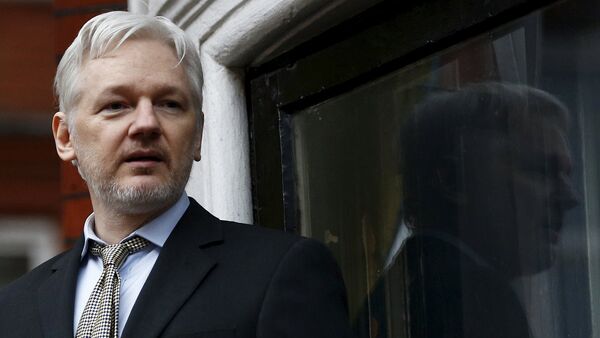"The Government of Ecuador respects the principle of non-intervention in the internal affairs of other states. It does not interfere in external electoral processes, nor does it favor any particular candidate," reads a statement from the Ecuadorian government.
— Joyce Karam (@Joyce_Karam) October 18, 2016
— WikiLeaks (@wikileaks) October 18, 2016
"Accordingly, Ecuador has exercised its sovereign right to temporarily restrict access to some of its private communications network within its Embassy in the United Kingdom. This temporary restriction does not prevent the WikiLeaks organization from carrying out its journalistic activities."
The statement goes on to reaffirm "the asylum granted to Julian Assange and reiterates its intention to safeguard his life and physical integrity until he reaches a safe place."
Quito maintains that its decision was not based on requests from other nations.
On Monday, WikiLeaks indicated that Julian Assange's internet link had been "intentionally severed by a state party" as part of an apparent effort to prevent the transparency organization from releasing emails related to the campaign of Democratic presidential hopeful Hillary Clinton. Hours later, WikiLeaks claimed that Ecuador was responsible.
Assange currently resides in the Ecuadorian Embassy in London, where he has been granted asylum.
WikiLeaks claimed that "multiple US sources tell us [US Secretary of State] John Kerry asked Ecuador to stop Assange from publishing Clinton docs during FARC peace negotiations."
— WikiLeaks (@wikileaks) October 18, 2016
On Tuesday, the transparency organization released its 11th batch of emails from Clinton's campaign chair John Podesta.


